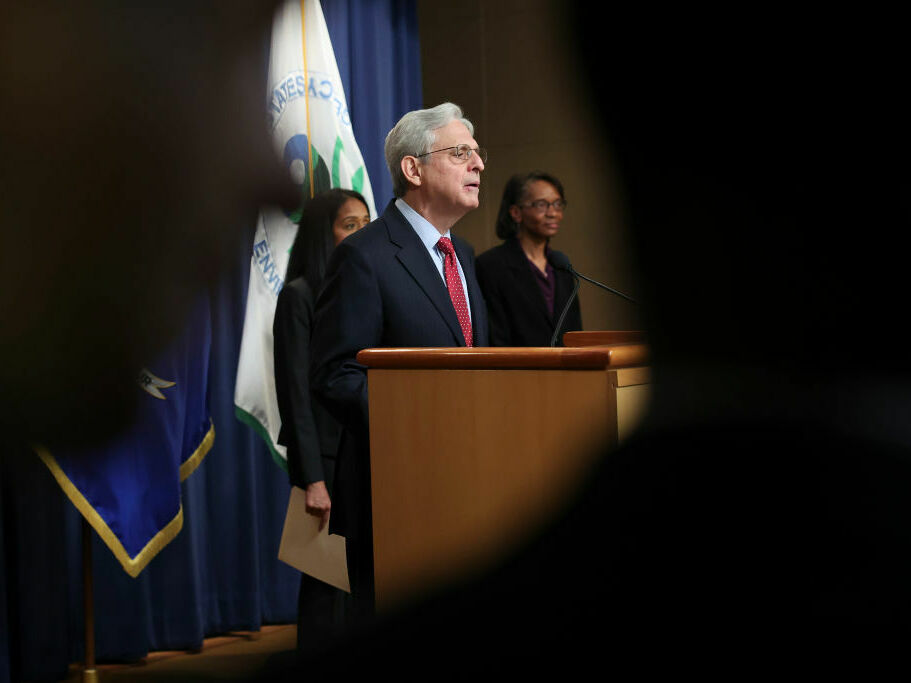
Attorney General Merrick Garland
Win McNamee / Getty Images
Updated May 16, 2024 at 9:00 AM ET
The White House exercised executive privilege over the audio recordings of Special Counsel Robert Hur's interview with the president.
"Because of the President's longstanding commitment to protecting the integrity, effectiveness, and independence of the Department of Justice and its law enforcement investigations, he has decided to assert executive privilege over the recordings," Edward Siskel, counsel to the president, wrote in a letter to Rep. Jim Jordan, chair of the House Judiciary Committee, and Rep. James Comer, chair of the House Oversight Committee.
House Republicans had demanded an audio recording of the interview Special Counsel Robert Hur conducted with President Biden. The Justice Department had provided the relevant panels a transcript of the interview. In his report, Hur described Biden as "an elderly man with a poor memory," remarks that angered the White House and its Democratic allies.
In the letter, Siskel noted disclosure of materials like the audio would make it less likely that witnesses in high-profile investigations will voluntarily cooperate. And, he noted: "The absence of a legitimate need for the audio recordings lays bare your likely goal—to chop them up, distort them, and use them for partisan political purposes. Demanding such sensitive and constitutionally-protected law enforcement materials from the Executive Branch because you want to manipulate them for potential political gain is inappropriate."
Siskel added: "Rather than demonstrating respect for the rule of law, this contempt proceeding is just the latest in the Committees' damaging efforts to undermine the very independence and impartiality of the Department of Justice and criminal justice system that President Biden seeks to protect."
Earlier, Attorney General Merrick Garland wrote in a letter to Biden that the "audio recordings of your interview ... fall within the scope of executive privilege."
The Justice Department also pushed back on House Republicans’ plan to hold Garland in contempt over the matter.
"It is the longstanding position of the executive branch held by administrations of both parties that an official who asserts the President's claim of executive privilege cannot be prosecuted for criminal contempt of Congress," Assistant Attorney Genral Carlos Uriarte said in a separate letter to Reps. Jordan and Comer.
"Production of these recordings to the Committees would raise an unacceptable risk of undermining the Department's ability to conduct similar high-profile criminal investigations-in particular, investigations where the voluntary cooperation of White House officials is exceedingly important," he wrote.
This story will be updated
Copyright 2024 NPR. To see more, visit https://www.npr.org.


